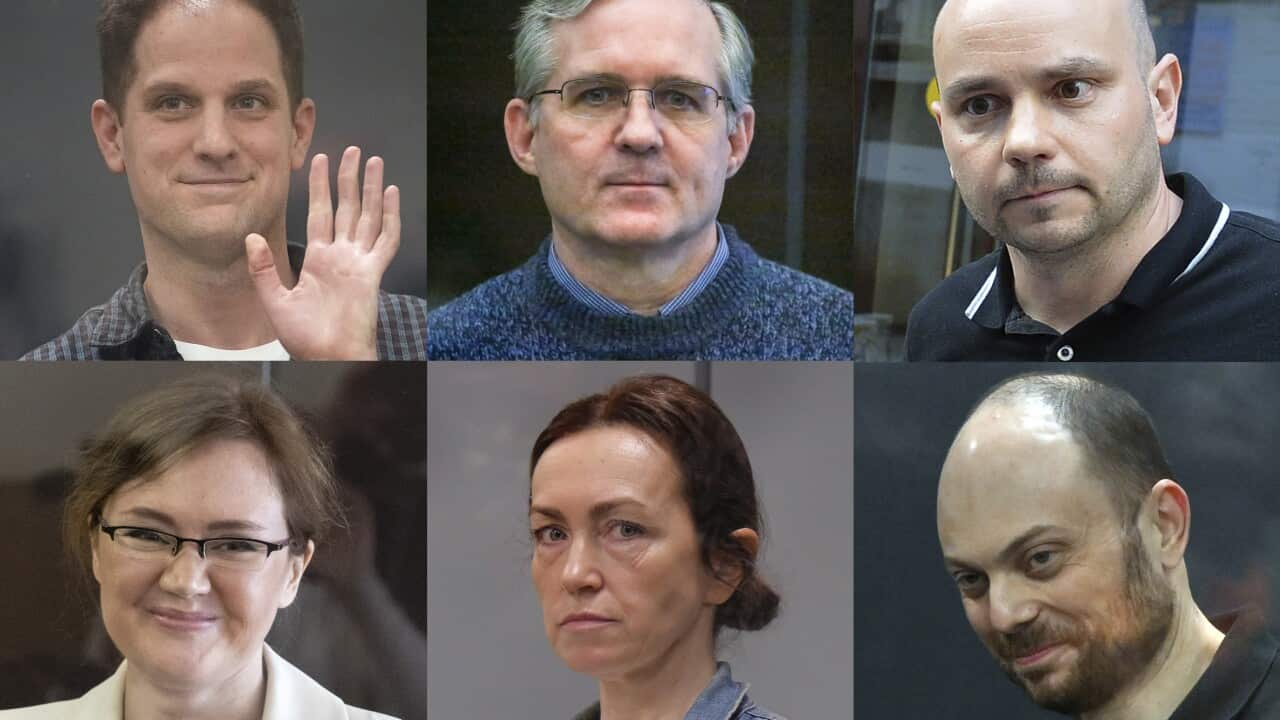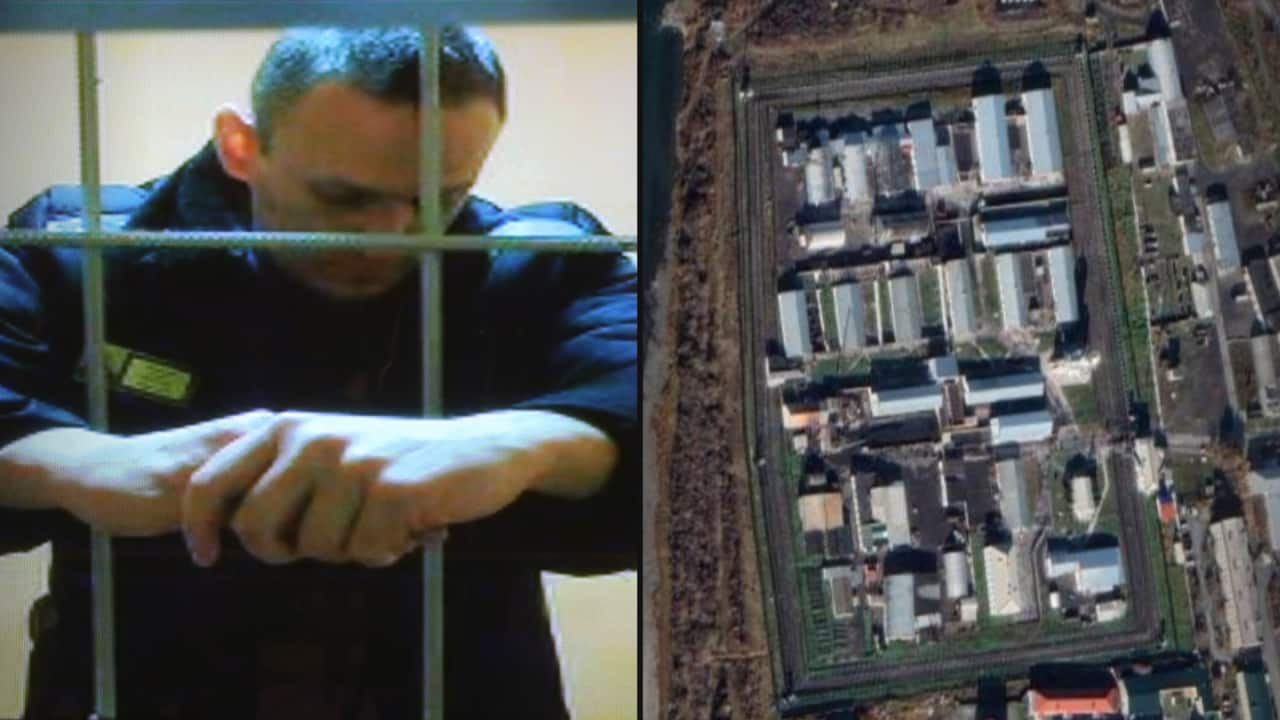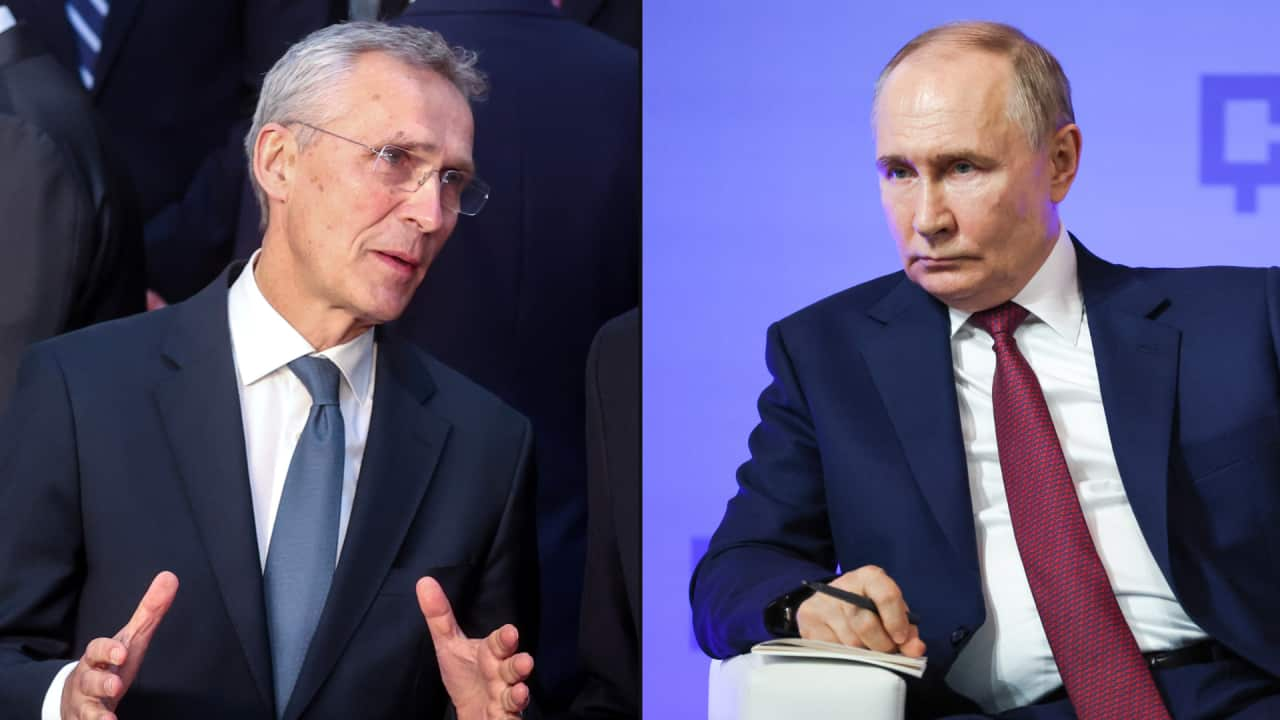Key Points
- The deal included 16 prisoners moving from Russia to the West and eight held in the West being sent back to Russia.
- Many of those freed had worked with Alexei Navalny, Russia's leading opposition figure, who died in unclear circumstances in February.
- The Kremlin said Russia's decision to pardon and free prisoners had been made to bring Russian captives home.
Russia and the West have released a total of 24 prisoners in the biggest exchange since the end of the Cold War, officials said on Thursday.
The deal included 16 prisoners moving from Russia to the West and eight prisoners held in the West being sent back to Russia.
and are among the prisoners released by the deal, negotiated in secrecy for more than a year.
Germany confirmed that Vadim Krasikov, a colonel in the Russian FSB security service who was serving a life sentence for , was being sent back to Russia.
The White House said the US had negotiated the trade with Russia, Germany and three other countries.

US Wall Street Journal reporter Evan Gershkovich was one of the prisoners released in the swap. Source: AP / Russian Federal Security Service via RTR
Who are the other released prisoners?
Rico Krieger, a German sentenced to death in Belarus on terrorism charges, was pardoned on Tuesday by President Alexander Lukashenko, a Putin ally, prior to being freed.
Also released was Vladimir Kara-Murza, a Russian-UK dissident serving 25 years for treason after telling the Arizona House of Representatives in March 2022 that Putin was bombing Ukrainian homes, hospitals and schools.
Freed along with him were human rights activist Oleg Orlov and Russian opposition politician Ilya Yashin.
Many of those freed had worked with Alexei Navalny, Russia's leading opposition figure, .
His widow Yulia Navalnaya, who has vowed to continue his work, hailed the releases as "a great happiness".
"Every released political prisoner is a huge victory and joy. No one should be held hostage by Putin, tortured and die in Putin's prison," she wrote on X.
Those released from the US were named as Roman Seleznev, Vladislav Klyushin and Vadim Konoshchenok.
Seleznev, the son of a Russian MP, was convicted in the US in 2017 of hacking into more than 500 businesses and stealing millions of credit card numbers.

Vladimir Putin greeted the Russian citizens at Moscow airport after they were released as part of the prisoner swap. Source: EPA / Mikhail Voskresenskiy / Sputnik / Kremlin Pool
Konoshchenok was extradited to the US from Estonia last year to face charges he smuggled ammunition and dual-use technology to help Russia's war in Ukraine.
'A feat of diplomacy': Joe Biden
The massive exchange comes in the waning months of US President Joe Biden's term in office .
Biden's four-year term has been marked by a sharp increase in tensions between the US and Russia over the latter's invasion of Ukraine.
Biden hailed the deal as "a feat of diplomacy and friendship" and praised allies for their "bold and brave decisions".
"This would not have been possible without our allies," he said, adding: "Today is a powerful example of why it's vital to have friends in this world."

President Joe Biden sang Happy Birthday to released prisioner Alsu Kurmasheva's almost 13-year-old daughter, Miriam Butorin. Source: AP / Evan Vucci
Administration officials said the multi-country deal appeared to be a one-time exchange that would not herald an easing in tensions between the nuclear-armed countries.
"After the completion of the ratification procedures of the parties, the health checks ... the prisoners were placed on the planes of the countries to which they would be travelling with the approval and instructions of the MIT," the National Intelligence Agency (MIT) of Türkiye said in a statement.
What has Russia said?
The Kremlin said Russia's decision to pardon and free prisoners had been made in order to bring Russian captives home.
Russian President Vladimir Putin himself had indicated he wanted Krasikov back and the German government, commenting on the swap deal, said it was "not an easy decision" to free him.
Former Russian president Dmitry Medvedev, a vociferous backer of Russia's war in Ukraine, which has prompted the arrest of hundreds of critics and driven relations with the US to their worst level since the Cold War, criticised those released in a Telegram post.
"Let the traitors now feverishly pick up new names and actively disguise themselves under witness protection programmes," he wrote.



